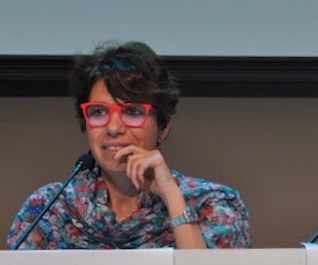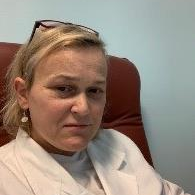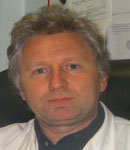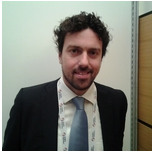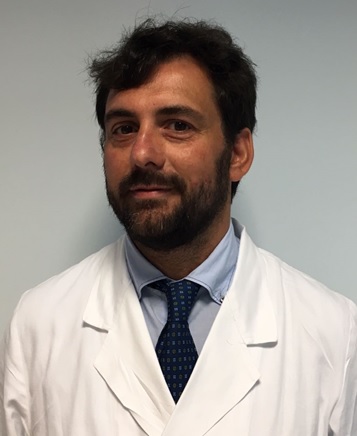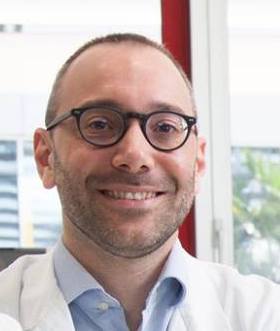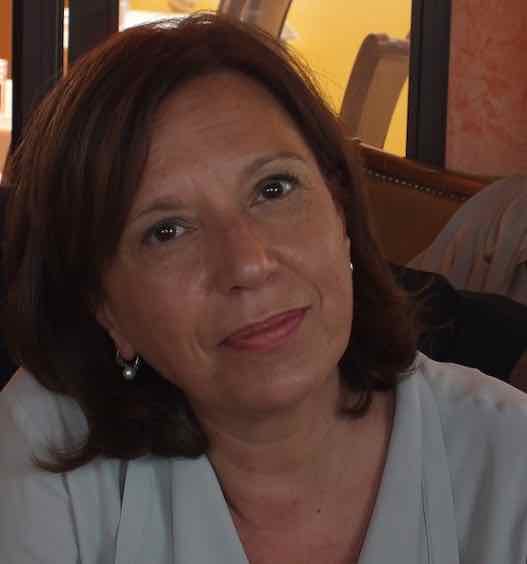Studying at the University of Verona
Here you can find information on the organisational aspects of the Programme, lecture timetables, learning activities and useful contact details for your time at the University, from enrolment to graduation.
Academic calendar
The academic calendar shows the deadlines and scheduled events that are relevant to students, teaching and technical-administrative staff of the University. Public holidays and University closures are also indicated. The academic year normally begins on 1 October each year and ends on 30 September of the following year.
Course calendar
The Academic Calendar sets out the degree programme lecture and exam timetables, as well as the relevant university closure dates..
| Period | From | To |
|---|---|---|
| INF LEG - 1° anno 1° sem | Oct 7, 2019 | Dec 20, 2019 |
| INF LEG - 2° anno 1° sem | Oct 8, 2019 | Dec 20, 2019 |
| INF LEG - 3° anno 1° sem | Oct 16, 2019 | Dec 20, 2019 |
| INF LEG - 1° anno 2° sem | Feb 3, 2020 | Apr 8, 2020 |
| INF LEG - 3° anno 2° sem | Mar 2, 2020 | Apr 30, 2020 |
| INF LEG - 2° anno 2° sem | Apr 15, 2020 | Jun 30, 2020 |
| Session | From | To |
|---|---|---|
| INF LEG - sessione invernale (1-2 anno) | Jan 7, 2020 | Jan 31, 2020 |
| INF LEG - sessione invernale (3 anno) | Feb 10, 2020 | Feb 28, 2020 |
| INF LEG - sessione estiva | Jul 1, 2020 | Jul 31, 2020 |
| INF LEG - sessione autunnale | Sep 1, 2020 | Sep 30, 2020 |
| Session | From | To |
|---|---|---|
| 1^ SESSIONE | Oct 1, 2020 | Nov 30, 2020 |
| 2^ SESSIONE | Mar 1, 2021 | Apr 30, 2021 |
| Period | From | To |
|---|---|---|
| FESTIVITA' OGNISSANTI | Nov 1, 2019 | Nov 1, 2019 |
| FESTIVITA' IMMACOLATA CONCEZIONE | Dec 8, 2019 | Dec 8, 2019 |
| Vacanze di Natale | Dec 24, 2019 | Jan 6, 2020 |
| VACANZE DI PASQUA | Apr 10, 2020 | Apr 15, 2020 |
| FESTA DELLA LIBERAZIONE | Apr 25, 2020 | Apr 25, 2020 |
| FESTIVITA' DEL LAVORO | May 1, 2020 | May 1, 2020 |
| FESTA DELLA REPUBBLICA | Jun 2, 2020 | Jun 2, 2020 |
| Description | Period | From | To |
|---|---|---|---|
| INF LEG - tirocinio 3° anno 1^ esp | INF LEG - tirocinio 3° anno 1^ esp | Jan 7, 2020 | Feb 7, 2020 |
| INF LEG - tirocinio 2° anno 1^ esp | INF LEG - tirocinio 2° anno 1^ esp | Feb 3, 2020 | Feb 28, 2020 |
| INF LEG - tirocinio 2° anno 2^ esp | INF LEG - tirocinio 2° anno 2^ esp | Mar 2, 2020 | Apr 8, 2020 |
| INF LEG - tirocinio 1° anno 1^ esp | INF LEG - tirocinio 1° anno 1^ esp | Apr 15, 2020 | May 20, 2020 |
| INF LEG - tirocinio 3° anno 2^ esp | INF LEG - tirocinio 3° anno 2^ esp | May 4, 2020 | Jun 26, 2020 |
| INF LEG - tirocinio 1° anno 2^ esp | INF LEG - tirocinio 1° anno 2^ esp | May 25, 2020 | Jun 30, 2020 |
| INF LEG - tirocinio 3° anno 3^ esp | INF LEG - tirocinio 3° anno 3^ esp | Sep 1, 2020 | Oct 9, 2020 |
| INF LEG - tirocinio 2° anno 3^ esp | INF LEG - tirocinio 2° anno 3^ esp | Sep 1, 2020 | Oct 6, 2020 |
Exam calendar
Exam dates and rounds are managed by the relevant Medicine Teaching and Student Services Unit.
To view all the exam sessions available, please use the Exam dashboard on ESSE3.
If you forgot your login details or have problems logging in, please contact the relevant IT HelpDesk, or check the login details recovery web page.
Should you have any doubts or questions, please check the Enrollment FAQs
Academic staff
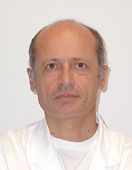
Bisoffi Zeno
 zeno.bisoffi@sacrocuore.it
zeno.bisoffi@sacrocuore.it
 +390456013326
+390456013326
 oncologia.medica.leg@aulsslegnago.it
oncologia.medica.leg@aulsslegnago.it
 daniela.cafaro@univr.it
daniela.cafaro@univr.it
 giulio.cesaro@aulsslegnago.it
giulio.cesaro@aulsslegnago.it
Cunico Laura
 laura.cunico@univr.it
laura.cunico@univr.it
 zenodebattisti@tiscali.it
zenodebattisti@tiscali.it
 concetta.dellorto@univr.it
concetta.dellorto@univr.it
 Kiaretta@libero.it
Kiaretta@libero.it
 marta.pantalone@univr.it
marta.pantalone@univr.it
Study Plan
The Study Plan includes all modules, teaching and learning activities that each student will need to undertake during their time at the University.
Please select your Study Plan based on your enrollment year.
1° Year
| Modules | Credits | TAF | SSD |
|---|
Professional Laboratories (1st year)
2° Year activated in the A.Y. 2020/2021
| Modules | Credits | TAF | SSD |
|---|
Professional Laboratories (2nd year)
3° Year activated in the A.Y. 2021/2022
| Modules | Credits | TAF | SSD |
|---|
Professional Laboratories (3rd year)
| Modules | Credits | TAF | SSD |
|---|
Professional Laboratories (1st year)
| Modules | Credits | TAF | SSD |
|---|
Professional Laboratories (2nd year)
| Modules | Credits | TAF | SSD |
|---|
Professional Laboratories (3rd year)
Legend | Type of training activity (TTA)
TAF (Type of Educational Activity) All courses and activities are classified into different types of educational activities, indicated by a letter.
Chronic clinical nursing care (2020/2021)
The teaching is organized as follows:
Learning outcomes
The course aims to investigate physio pathological, clinical and care aspects of some important health problems selected considering their epidemiological relevance and feature in situation of clinical instability but above all in chronicity/disability. The course considers changes deriving from aging and from chronic degenerative problems increase. The approach focuses on the recognition and management of current and potential problems with a view to continuity in different care settings and on development of competencies and self-care skills. GERIATRICS: The course aims to deepen the physiopathological, clinical and care aspects of some priority health problems selected based on their relevance epidemiological and exemplary both in the situation of clinical instability but above all in the chronicity / disability. Consider the resulting changes aging population and the increase in chronic degenerative problems. The approach focuses on the recognition and management of problems current and potential in a perspective of continuity in different care contexts and on the promotion and development of skills and s+J32elf-care skills. CLINICAL NURSING IN MEDICINE AND PALLIATIVE CARE: Knowing how to describe the sphere of palliative care and identifying objectives and methods of taking charge of the people involved and their families Identify the most approp+J32riate approaches to the individual phases of the disease pathway. NURSING IN CHRONIC DISEASE The module aims to deepen the physiopathological, clinical and care aspects of some priority health problems selected based on their epidemiological relevance and exemplarity both in the situation of clinical instability but above all in the chronicity / disability. Consider the changes resulting from the aging of the population and the increase in chronic degenerative problems. The approach focuses on the recognition and management of current and potential problems in a perspective of continuity in different care contexts and on the promotion and development of skills and self-care skills. INTERNAL MEDICINE The module aims to provide knowledge on the physiopathological processes and the main diagnostic-therapeutic pathways of the main clinical pictures such as liver cirrhosis, pneumonia and bronchopulmonary foci, gastritis and gastric ulcers, chronic inflammatory bowel diseases, acute and chronic renal failure . With reference to the illnesses treated, the student, on the basis of knowledge, must be able to: a) recognize the main signs and symptoms of the diseases treated and b) acquire some basic hints for therapeutic management. REHABILITATION MEDICINE to acquire knowledge about concepts of disablement,disability and handicap, neuro-Motor rehabilitation Bladder’s neurologic rehabilitation and rehabilitation of patients with hip and knee’s prosthesis NEUROLOGY: To acquire the basic knowledge of the anatomy and physiology of the central and peripheral nervous system, of the etiopathogenesis, of the physiopathology of the main neurological syndromes, the principles of treatment and the type of supportive care ENDOCRINOLOGY: Nursing knowledge and skills in the diagnosis, management and treatment of diabetes mellitus and other major endocrine diseases.
Program
------------------------
MM: GERIATRIA
------------------------
Demographics and Epidemiology of Aging. Geriatrics as a medicine of complexity. Multidimensional Geriatric Assessment. Changes in body composition with aging: Sarcopenia. Malnutrition in the elderly. Obesity in the elderly. Geriatric syndromes. The falls. Syncope. Cognitive impairment and delirium. The immobilization syndrome.
------------------------
MM: MEDICINA RIABILITATIVA
------------------------
The course will cover the following topics: - Concepts of impairment, disability, handicap. - International Classification of the Functioning of Disability and Health (ICF). - Rehabilitation: intervention strategies and prevention. - Prosthetics, orthoses and aids. - Neuromotor rehabilitation of patient with stroke and brain injury. - Rehabilitation of neurological bladder - Rehabilitation of hip and knee arthroplasty DIDACTIC METHODS Lectures with slides.
------------------------
MM: INFERMIERISTICA CLINICA NELLA CRONICITA'
------------------------
Principles of taking charge of the person with chronic degenerative disease: - advance patient autonomy and independence and reduce the risk of disability - advance self-management of the disease - ensure continuity of care: transitions, resignations, treatment reconciliation - realize the disease trajectory Effects of hospitalization in chronicity and strategies to avoid "hospitalization syndrome". Problems of the elderly person and / or with chronic degenerative pathologies: - dysphagia: evaluation and management - risk of falling: risk factors and prevention measures - cognitive state and cognitive disorders: evaluation and management of memory deficit, language deficit, perception deficit - confusional state and delirium - caregiving and burden of the caregiver - communication with the elderly without and with cognitive impairment: ageism, elderspeak Stroke Assessment and protocol in the first 24 hours Assessment and rehabilitation-educational approach in the post-acute phase with particular attention to early mobilization, outcomes related to disability and family needs Diabetes mellitus - the educational triad: drug-insulin treatment, diet and nutrition and physical activity - self-care behaviors of acute complications: hypoglycaemia and hyperglycaemia - acute situations requiring integrated intervention - interventions for the prevention of chronic complications Parkinson and Alzheimer - assessment, definition and expressions of the main clinical manifestations - problems and clusters of symptoms in the trajectory of disease from the pre-clinical phase to the advanced phase of the disease - educational-care / rehabilitation and palliative approach in the various stages of illness - family needs and caregiving
------------------------
MM: INFERMIERISTICA CLINICA IN MEDICINA E CURE PALLIATIVE
------------------------
Palliative care - Palliative care and simultaneous care - The person in terminal phase: identification and holistic assistance - The evolutionary trajectories of diseases - The outcomes: quality of life and prognosis - The care settings and the palliative care network - The nurse in palliative care The assistance in palliative care - Symptoms in the person with advanced and/or end of life chronic-degenerative disease - Pain in the advanced stage of disease - End-of-life care needs - Emergencies in palliative care - Pharmacological therapy in palliative care - Cirrhosis: clinical care management in the compensation phase and in the advanced stage of disease - The accompaniment of the person and the family at the end of life - Terminal sedation
------------------------
MM: ENDOCRINOLOGIA
------------------------
The program will address the disorders of the following systems: - basic endocrinology, mechanisms of hormonal regulation, anterior pituitary, diabetes insipidus - Thyroid gland - Adrenal cortex - Diabetes Mellitus The final exam will be mainly based on the notes taken during the lessons. As reference, the text suggested is: Rugarli. Medicina Interna sistematica, Estratto: Malattie del sistema endocrino e del metabolismo
------------------------
MM: MEDICINA INTERNA
------------------------
- Anaemias including erythrocytopathies and hemoglobinopathies, lymphomas and acute and chronic leukemias - gastrointestinal diseases and in particular, acute and chronic gastritis, gastroesophageal reflux disease, peptic ulcer - acute and chronic renal insufficiency - chronic pancreatitis . malabsorption and malnutrition
------------------------
MM: NEUROLOGIA
------------------------
Bibliography
| Author | Title | Publishing house | Year | ISBN | Notes |
|---|---|---|---|---|---|
| Kasper Gl, et al. | Harrison's Principles of Internal Medicine, 19th Edition, | Mc Graw Hill, | 2018 | ||
| Brugnolli Anna e Saiani Luisa | Trattato di Medicina e Infermieristica - Un approccio di cure integrate | Sorbona | 2017 | ||
| Saiani-Brugnolli | Trattato di cure infermieristiche (Edizione 3) | Sorbona | 2020 | 9788879477314 | |
| Brugnolli A., Saiani L. | Trattato di Medicina e Infermieristica. Un approccio di cure integrate. (Edizione 1) | Idelson-Gnocchi | 2017 | 9788879476379 | |
| Ottavio Bosello, Mauro Zamboni | Manuale di Gerontologia e Geriatria (Edizione 1) | 978-88-299-2094-5 | 2011 | ||
| Antonelli Incalzi Raffaele | Medicina Interna perScienze infermieristiche | PICCIN | 2012 | 978-88-299-2114-0 | |
| Senin | Paziente anziano e paziente geriatrico | EdiSes, Napoli, ultima ed. | |||
| Carolyn Kisner - Lynn Allen Colby - John Borstad | Esercizio terapeutico: fondamenti e tecniche | Piccin | 2019 | ISBN 978-88-299-3021-0 | |
| Nino Basaglia | Medicina Riabilitativa | Idelson - Gnocchi | 2009 | 9788879474917 | |
| Giorgio N. Valobra, Renato Gatto, Marco Monticone | Trattato di medicina fisica e riabilitazione | Utet Scienze Mediche | 2007 | 8802078963 | |
| Prandi Cesarina | Infermieristica in cure palliative | Edra S.p.A. Milano | 2016 | ||
| Saiani.L., Brugnolli., (2020) | Trattato Cure Infermieristiche (Edizione 3) | 2020 | |||
| Saiani-Brugnolli | Trattato di medicina e infermieristica | Sorbona | 2017 | ||
| Dennis L. Kasper, Eugene Braunwald, Anthony Fauci, Stephen Hauser, Dan Longo, J. Larry Jameson | Harrison - Principi di Medicina Interna.2 voll. (Edizione 19) | McGraw-Hill, Milano | 2015 | ||
| Massini R, Longhi C, Marchetti P, Passeretti F, Recine U | Medicina interna (Edizione 4) | McGraw -Hill, Milano | 2009 | 883861654X | |
| Bertora Pierluigi | Neurologia per le professioni sanitarie | 2015 | 978-88-299-2744-9 |
Examination Methods
The final evaluation will be performed be a multiple choices test in which the number of questions is defined as proportional to the number of hours of each single module of the integrated teaching course. The final score will refer to the integrated course as a whole.
Career prospects
Module/Programme news
News for students
There you will find information, resources and services useful during your time at the University (Student’s exam record, your study plan on ESSE3, Distance Learning courses, university email account, office forms, administrative procedures, etc.). You can log into MyUnivr with your GIA login details: only in this way will you be able to receive notification of all the notices from your teachers and your secretariat via email and soon also via the Univr app.
Gestione carriere
Tirocinio professionalizzante
Finalità del TirocinioLe attività di tirocinio sono finalizzate a far acquisire allo studente competenze specifiche previste dal profilo professionale. Per conseguire tali finalità formative, si possono attivare convenzioni con strutture, che rispondano ai requisiti di idoneità per attività, dotazione di servizi e strutture.
I 60 crediti minimi riservati al tirocinio sono da intendersi come impegno complessivo necessario allo studente per raggiungere le competenze professionali “core” previste dal rispettivo profilo professionale.
Il tirocinio professionale comprende:
- sessioni tutoriali che preparano lo studente all’esperienza;
- esercitazioni e simulazioni in cui si sviluppano le abilità tecniche, relazionali e metodologiche in situazione protetta prima o durante la sperimentazione nei contesti reali;
- esperienze dirette sul campo con supervisione;
- sessioni tutoriali e feedback costanti;
- compiti didattici, elaborati e approfondimenti scritti specifici e mandati di studio guidato.
Le esperienze di tirocinio devono essere progettate, valutate e documentate nel percorso dello studente. Durante ogni esperienza di tirocinio lo studente riceve valutazioni formative sui suoi progressi sia attraverso colloqui e schede di valutazione.
Al termine di ciascun anno di corso viene effettuata una valutazione sommativa (certificativa) per accertare i livelli raggiunti dallo studente nello sviluppo delle competenze professionali attese. La valutazione viene effettuata da una Commissione presieduta dal Coordinatore della Didattica Professionale (CDP), e composta da almeno un docente e da un Tutor professionale. Tale valutazione è la sintesi delle valutazioni formative, via via, documentate durante l’anno di corso, il profitto raggiunto negli elaborati scritti e le performance delle abilità tecniche assistenziali e relazionali dimostrate all’esame di tirocinio che può essere realizzato con esami simulati, colloqui, prove scritte applicative.
L’esame annuale di tirocinio prevede un unico appello per anno accademico, salvo particolari situazioni per le quali la commissione didattica potrà concedere un appello straordinario.
La valutazione sommativa del tirocinio sarà espressa e registrata nella carriera in trentesimi in base al livello di raggiungimento degli obiettivi. Le modalità di registrazione del voto di profitto sono:
- “assente” pre-iscritto che non ha frequentato alcuna esperienza di tirocinio;
- “ritirato” sospensione durante il tirocinio per problemi di salute, gravidanza o per motivazioni personali;
- “insufficiente” non raggiungimento del livello atteso negli obiettivi formativi (anche se lo studente ha sospeso la frequenza al tirocinio o non sostenuto l’esame finale).
Il Coordinatore della Didattica Professionale (CDP), ammette alla frequenza dell’esperienza di tirocinio previsto per l’anno di corso, gli studenti che hanno frequentato regolarmente:
- le attività teoriche, in particolare gli insegnamenti delle discipline professionali dell’anno in corso e dell’anno precedente
- laboratori professionali ritenuti propedeutici al tirocinio
Per maggiori informazioni consultare la pagina del servizio
Guida ai programmi degli insegnamenti
Guida ai programmi degli insegnamenti
Documents
| Title | Info File |
|---|---|
|
|
pdf, it, 1594 KB, 12/12/22 |
|
|
pdf, it, 1310 KB, 02/09/21 |
Graduation
Documents
| Title | Info File |
|---|---|
|
|
pdf, it, 242 KB, 19/01/24 |
|
|
pdf, it, 80 KB, 06/04/24 |
|
|
pdf, it, 43 KB, 06/04/24 |
|
|
pdf, it, 44 KB, 09/04/24 |
|
|
pdf, it, 148 KB, 06/04/24 |
|
|
pdf, it, 108 KB, 06/04/24 |
|
|
pdf, it, 115 KB, 06/04/24 |
|
|
pdf, it, 1487 KB, 18/02/22 |
|
|
pdf, it, 437 KB, 22/03/24 |
|
|
pdf, it, 957 KB, 22/03/24 |
|
|
pdf, it, 424 KB, 19/01/24 |
Linee guida per riconoscimento cfu
Lo studente che intende chiedere il riconoscimento di moduli o insegnamenti pregressi dovrà presentare domanda, entro il 30 novembre dell’anno accademico in corso, seguendo le indicazioni indicate al link seguente: https://www.univr.it/it/i-nostri-servizi/segreterie-studenti/gestione-carriere-studenti-medicina-e-chirurgia/riconoscimento-crediti-acquisiti-da-una-carriera-pregressa-medicina
Documents
| Title | Info File |
|---|---|
|
|
pdf, it, 295 KB, 09/11/21 |
Orario lezioni
COMUNICAZIONE DEL PRESIDENTE DEL COLLEGIO DIDATTICO
Carissime Studentesse,
Carissimi Studenti,
di seguito un promemoria relativo alle modalità di erogazione della didattica per il corso di studio in Infermieristica A.A. 2022/2023.
In ottemperanza alle linee guida della Commissione didattica di Ateneo, che prevedono una didattica improntata ad un pieno recupero delle modalità regolari di erogazione in presenza, la Commissione didattica del CdL nella seduta del 29 settembre 2022, ha deliberato il pieno ritorno all’utilizzo della didattica frontale in presenza.
Solo nei casi di comprovata positività al COVID-19, e/o in situazioni di particolare fragilità (sempre correlate alla pandemia) sarà previsto il collegamento sincrono in modalità streaming; a tal proposito ogni Docente, sulla propria pagina web, darà chiare indicazioni sulla modalità di fruizione della didattica.
La modalità asincrona (registrazioni delle lezioni) non è prevista.
Nell’augurarvi un buon Anno Accademico, vi saluto cordialmente
Prof. Paolo F Fabene
Documents
| Title | Info File |
|---|---|
|
|
pdf, it, 8849 KB, 20/10/22 |
|
|
pdf, it, 108 KB, 29/02/24 |
|
|
pdf, it, 90 KB, 22/04/24 |
|
|
pdf, it, 85 KB, 05/04/24 |
Student login and resources
Attività didattiche regime part-time
Modalità di richiesta
La domanda di iscrizione part-time può essere presentata all'inizio di ogni anno accademico e comunque entro il 30 novembre di ogni anno. Entro lo stesso termine, se necessario, lo studente potrà richiedere di tornare al regime full-time. Al link seguente la pagina del servizio https://www.univr.it/it/i-nostri-servizi/segreterie-studenti/flessibilita-nella-frequenza-dei-corsi/possibilita-di-iscrizione-part-time-e-ripristino-full-time
Una volta inviata la domanda, lo studente concorda in via preventiva con il Coordinatore della didattica professionale (CDP), il piano di studi che intende perseguire nel periodo di part-time compilando il modulo in allegato
Documents
| Title | Info File |
|---|---|
|
|
octet-stream, it, 1309 KB, 21/10/22 |
Appelli d'esame
Documents
| Title | Info File |
|---|---|
|
|
pdf, it, 92 KB, 17/01/24 |
|
|
pdf, it, 84 KB, 17/01/24 |
|
|
pdf, it, 92 KB, 22/04/24 |
|
|
pdf, it, 145 KB, 17/01/24 |
Dossier Informativi per lo studente
Documents
| Title | Info File |
|---|---|
|
|
pdf, it, 271 KB, 19/01/24 |
|
|
pdf, it, 235 KB, 19/01/24 |
|
|
pdf, it, 216 KB, 19/01/24 |




